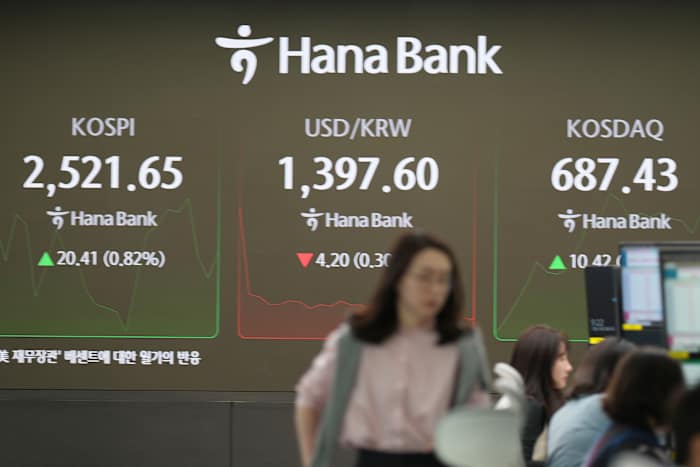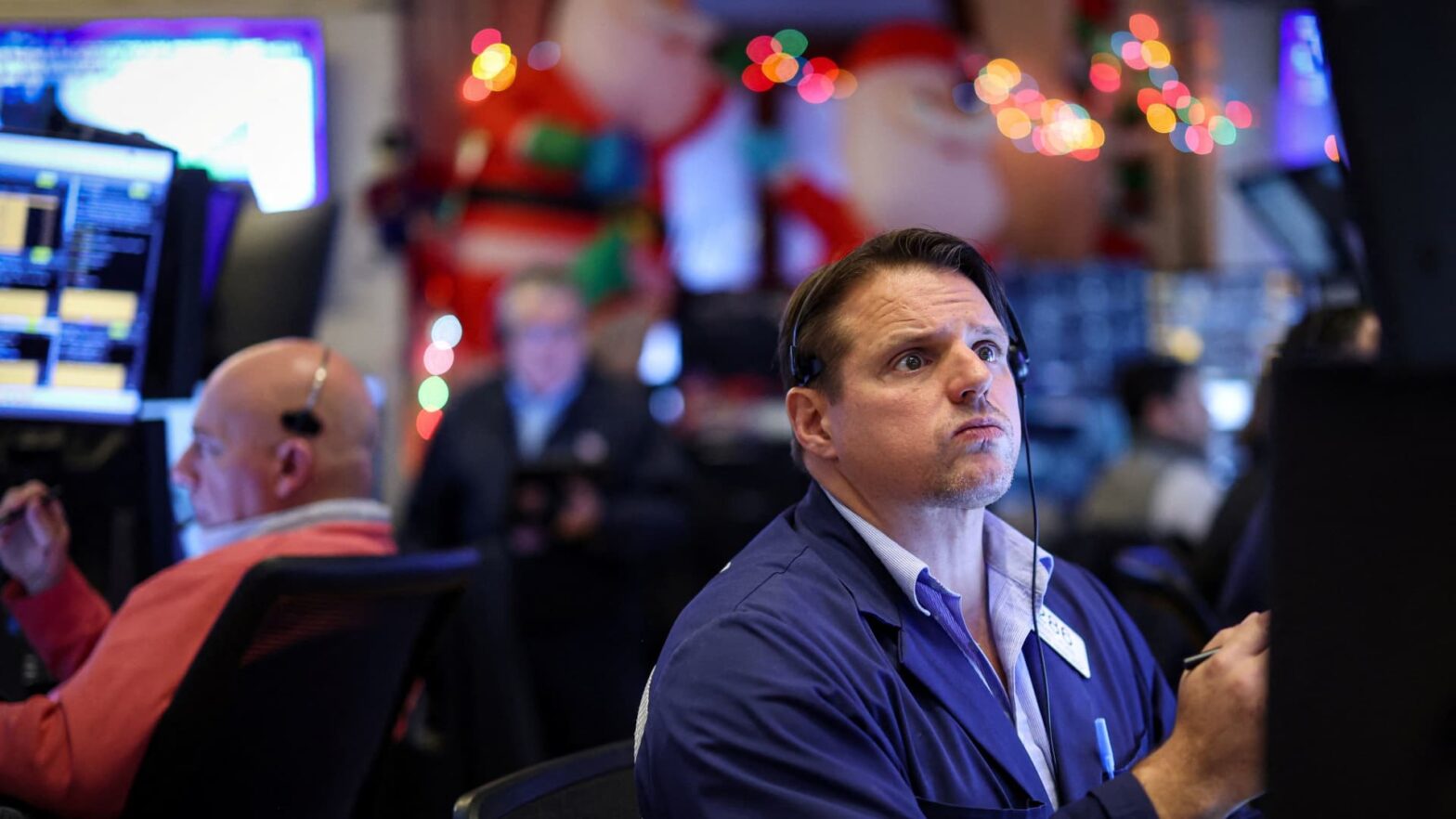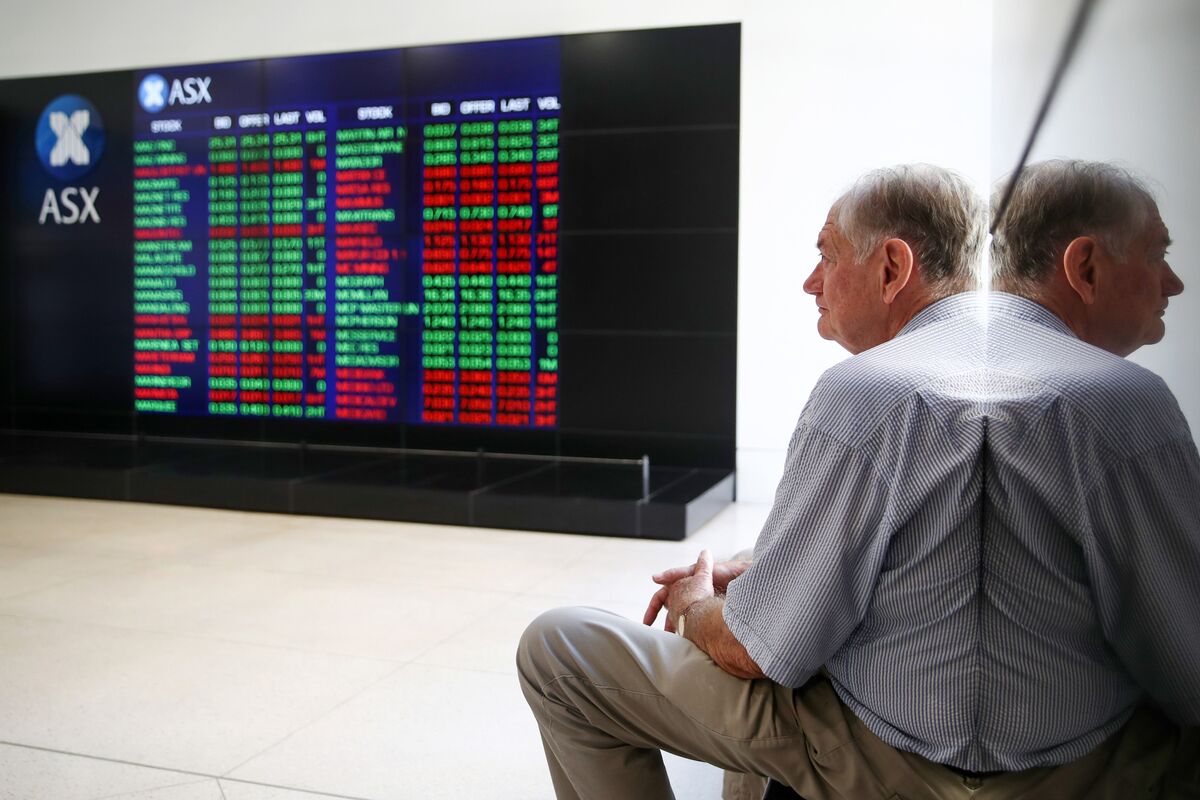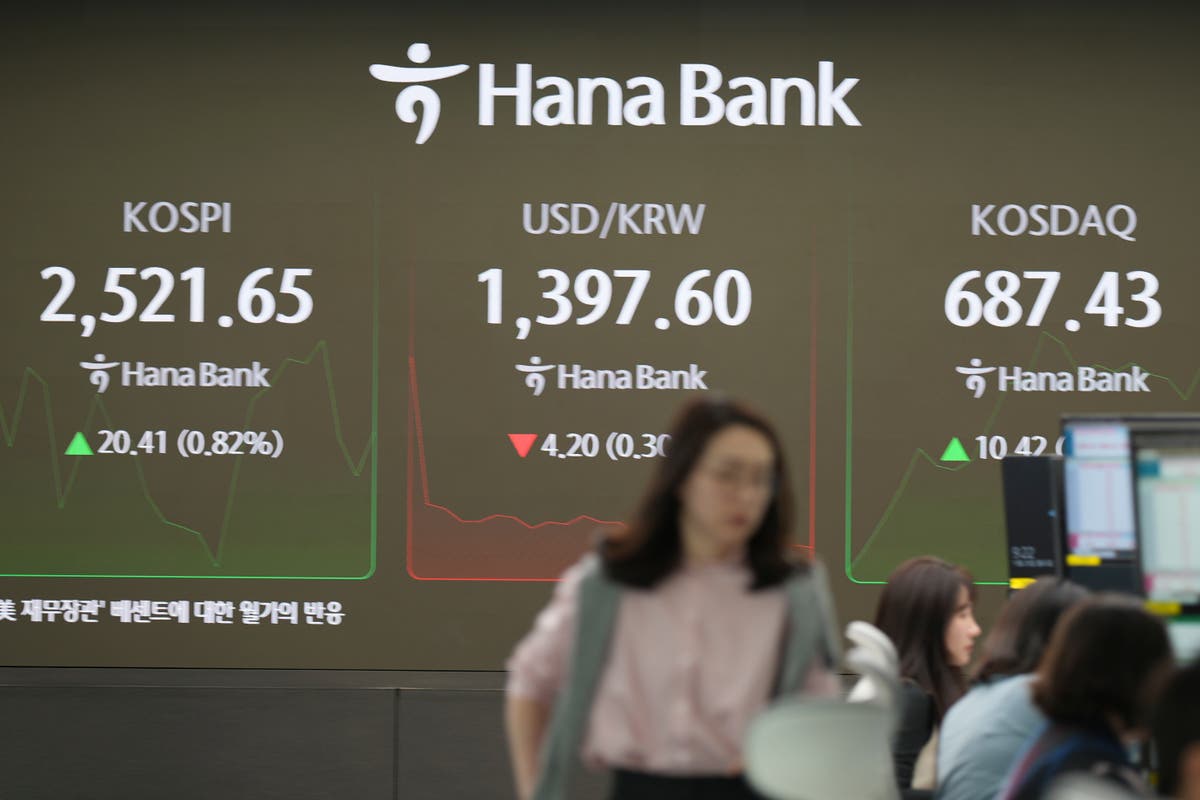1 / 5
Copyright 2024 The Associated Press. All rights reserved
A currency trader walks near the screens showing the Korea Composite Stock Price Index (KOSPI), left, the foreign exchange rate between U.S. dollar and South Korean won and the Korean Securities Dealers Automated Quotations (KOSDAQ) at a foreign exchange dealing room in Seoul, South Korea, Monday, Nov. 25, 2024. (AP Photo/Lee Jin-man)
BANGKOK – Shares climbed in Asia on Monday, tracking last week’s gains on Wall Street, and analysts said investors were viewing President-elect Donald Trump’s choice of billionaire investor Scott Bessent as his nominee for Treasury secretary as a relatively market-friendly choice.
Bitcoin fell slightly and oil prices also declined, while U.S. futures advanced.
Tokyo’s Nikkei 225 index gained 1.3% to 38,780.14 while the Kospi in Seoul rose 1.3% to 2,534.34. In Australia, the S&P/ASX 200 picked up 0.3% to 8,417.60.
In China, shares fell further, with the Shanghai Composite index giving up 0.4% to 3,253.28 and the Hang Seng in Hong Kong falling 0.3% to 19,172.07.
China’s central bank kept the interest rate on the one-year medium-term lending facility unchanged at 2%.
Shares in technology companies saw big declines, with online shopping platform Meituan falling 4% while multimedia and video games company Tencent dropped 1.5%.
Taiwan’s Taiex added 0.2% and the Sensex in India was up 1.4%. In Bangkok, the SET was nearly unchanged.
This week will bring an update on consumer sentiment from the business group The Conference Board on Tuesday and key inflation data with the release Wednesday of the personal consumption expenditures index for October. The PCE is the Fed’s preferred measure of inflation and this will be the last PCE reading prior to a meeting of the Federal Reserve next month.
On Friday, stocks closed higher on Wall Street as the market posted its fifth straight gain and the Dow Jones Industrial Average notched another record high, gaining 1% to close at 44,296.51.
The S&P 500 rose 0.3%, to 5,969.34 while the Nasdaq composite rose 0.2% to 19,003.65. The Russell 2000 index rose 1.8%.
Markets have swung widely since the U.S. elections in November, and Trump’s choices to head Treasury and other key positions that influence economic and financial policies were among the factors overhanging investor sentiment.
Bessent, 62, is a hedge fund manager considered to be closely aligned with Wall Street. He is the founder of hedge fund Key Square Capital Management, after having worked on-and-off for Soros Fund Management since 1991. If confirmed by the Senate, he would be the nation’s first openly gay treasury secretary.
The proposed choice was interpreted “as a sign that President-elect Trump might adopt a more measured approach to tariffs and fiscal policy. Bessent’s influence is expected to bring nuanced economic strategies to the forefront, potentially easing concerns over abrupt policy shifts,” Stephen Innex of SPI Asset Management said in a commentary.
Investors are watching for signs of some moderation in Trump’s stance toward tariffs and other policies that might affect business both at home and overseas.
But he said attention this week would likely focus more on the inflation data and what they might mean for interest rates, as the Fed holds its next policy meeting.
A majority of stocks in the S&P 500 gained ground, but those gains were kept in check by slumps for several big technology companies.
Nvidia fell 3.2%. Its pricey valuation makes it among the heaviest influences on whether the broader market gains or loses ground. The company has grown into a nearly $3.6 trillion behemoth because of demand for its chips used in artificial-intelligence technology.
Intuit, which makes TurboTax and other accounting software, fell 5.7%. It gave investors a quarterly earnings forecast that fell short of analysts’ expectations.
Facebook owner Meta Platforms fell 0.7% following a decision by the Supreme Court to allow a multibillion-dollar class action investors’ lawsuit to proceed against the company. It stems from the privacy scandal involving the Cambridge Analytica political consulting firm.
In the crypto market, bitcoin hovered around $98,000, according to CoinDesk. It has more than doubled this year and first surpassed the $99,000 level on Thursday.
In other dealings early Monday, U.S. benchmark crude oil lost 51 cents to $70.73 per barrel in electronic trading on the New York Mercantile Exchange. Brent crude, the international standard, also fell 51 cents, to $74.12 per barrel.
The U.S. dollar rose to 154.43 Japanese yen from 154.31 yen. The euro climbed to $1.0486 from $1.0475.
Copyright 2024 The Associated Press. All rights reserved. This material may not be published, broadcast, rewritten or redistributed without permission.

















